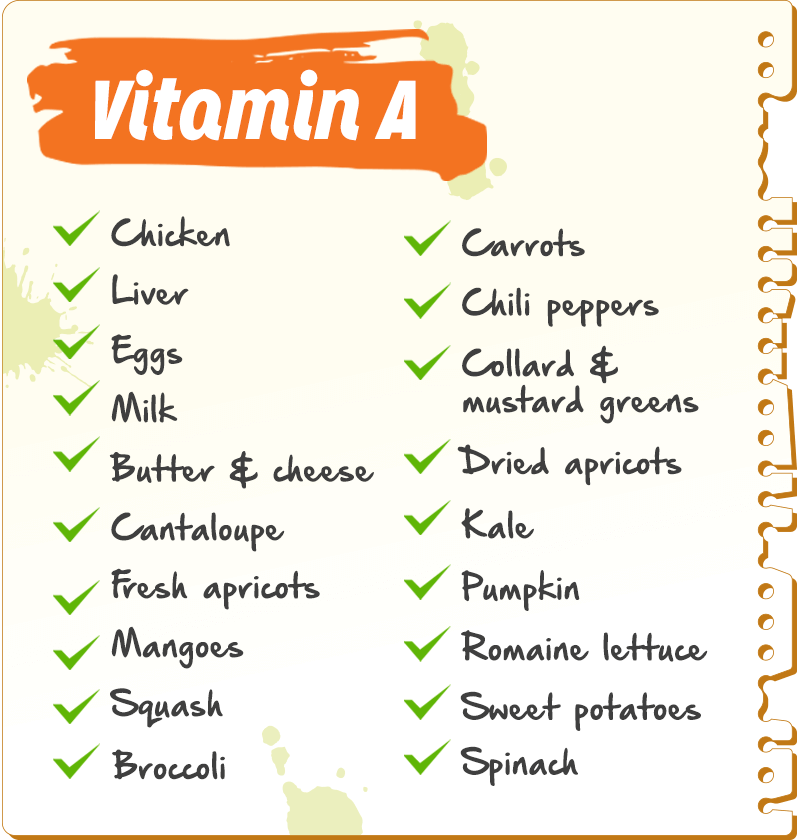Vitamin A
Well known for supporting healthy vision, vitamin A also plays a significant role in fetal development and immune function. There are two main forms of vitamin A: the animal-based retinol, which is the most bioavailable (biologically-active) form, and plant-based carotenoids, found in red-orange vegetables and fruits, which your body can convert when needed to retinol. Both forms provide multiple benefits to your body.
Fast Fact: Roughly 70-90% of your body’s vitamin A is stored in your liver.
Why You Need It: Vitamin A supports your immune system function by maintaining the health of the cells lining your nose and throat as well as those lining your respiratory, digestive and urinary tracts. A key to healthy vision, vitamin A helps you see in low light and at night. Vitamin A is also involved in gene regulation, the formation of strong bones, cell differentiation, neurological function, helping to slow the aging process and maintaining healthy skin. Vitamin A is required to produce red blood cells and integrate iron into hemoglobin.
Vitamin A plays a very significant and crucial role in fetal development, influencing the formation of the unborn baby’s central nervous, circulatory, respiratory and urogenital systems, the eyes and ears, the skull and skeleton, and more. Each organ system or tissue begins to develop during a specific window of time, with vitamin A signaling genes and regulating the differentiation of primitive cells into more specific cells. If vitamin A is lacking during any given developmental window, those organs or tissues can develop abnormally or, worse case, not at all. Too much vitamin A during pregnancy can also result in congenital malformations.

× ![]()
Best Food Sources: Get your “preformed” vitamin A (retinol) from beef and chicken liver, eggs, milk, butter and cheese from organically or pastured-raised and grass-fed animals. Top sources of carotenoids are carrots, chili peppers, collard and mustard greens, dried apricots, kale, pumpkin, Romaine lettuce, sweet potatoes, and spinach. Also cantaloupe, fresh apricots, mangoes, squash (especially winter) and broccoli. Vitamin A is a fat-soluble vitamin, so be sure to eat your vitamin-A rich foods with a small amount of healthy fat, or take your supplement after fat-containing meal, so your body can absorb it.
Supplement Suggestions: Look for a multivitamin that contains either all beta-carotenes or mixed carotenes, or one that has no more than 50% as retinol with the rest as mixed carotenoids or beta-carotene. Cod liver oil is an alternative to a pill supplement.
Need to Know: Over 50% of American adults aren’t getting enough vitamin A in their diets.
Check out our food and supplement shopping tips.